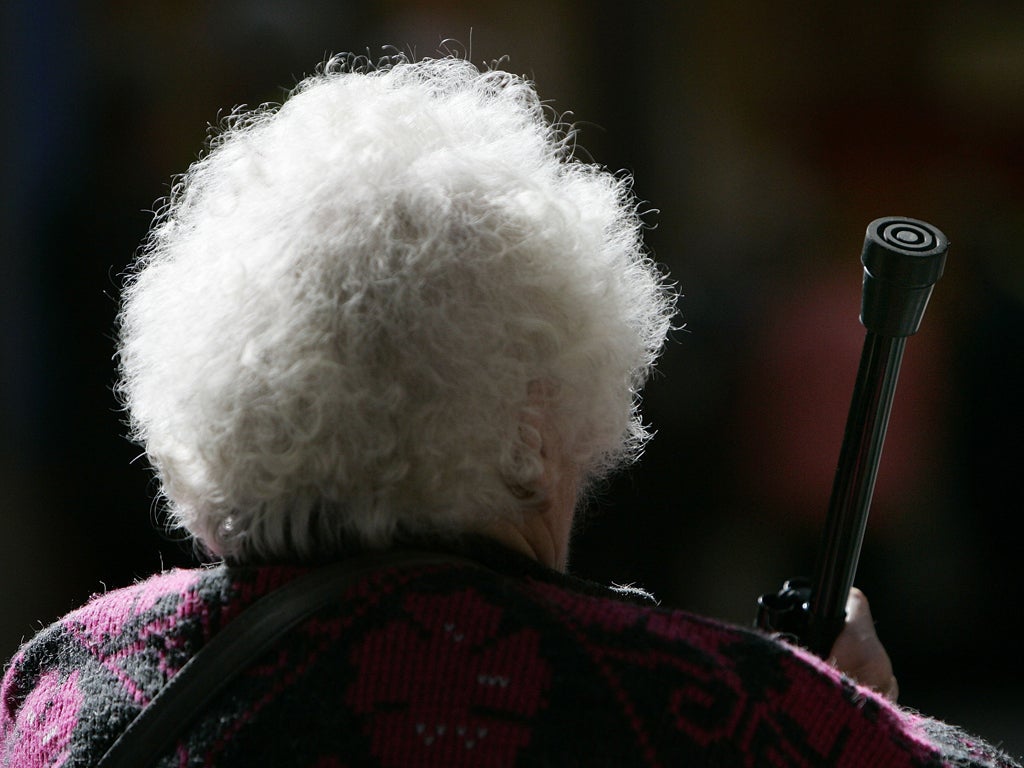Will the state help us all have carers like Sheila?
The ‘wellderly’ represent an untapped resource that could transform our society and economy


Sheila is a professional carer for an elderly relative of mine. She is 64 – eligible for retirement herself – but is one of the hardest-working people I have ever encountered. Her caring duties include cooking, cleaning and nursing, but at her insistence she does far more – gardening, driving, and housekeeping.
As a trained chef, her meals are delicious, ranging from Dover sole to lemon meringue pie. A Lancastrian with an acerbic wit, she also provides my elderly relative with fantastically good company, thus performing a vital role when family members cannot be there. We have joked how wonderful it would be to make carbon copies of Sheila – a selfless, kind tower of strength, and put one in every company across the country. The economy would thrive in no time.
In fact, Sheila is like so many other carers, whether professional or unpaid. Carers are the backbone of the country. But they are also invisible, largely ignored by policymakers and the media. Social care is the unloved, difficult policy area that successive governments have seemed to not want to deal with, as if we are in denial about the very state of ageing. As a society we are like a Marks & Spencers advert: there is no place for grey hair.
Yet the UK is becoming older, rapidly. According to Age UK, 22 per cent of the UK population are over 60, and in 20 years’ time, it will be 29 per cent – nearly one in three of us. As the elderly population grows, so does demand for people like Sheila.
Of course not every carer can do all the things that Sheila does. There isn’t enough time in the day. So this week’s proposal by a group of charities – including Carers UK – and Norman Lamb, the care minister, for the state to provide the elderly with vouchers to spend on extra help with cleaning and household chores is very attractive.
First, it would relieve the pressure on family members (and in turn their employers) who have to take time off work to help care for elderly or sick relatives. There are 6.5 million people who currently look after a friend or relative, unpaid. This week, a report by the IPPR think- tank revealed that tens of thousands of people over 50, mainly women, are being driven out of work because they are caring for elderly parents, as well as their own grandchildren.
Second, it would, say the report’s authors, create 700,000 jobs in the “domestic sector” – an area of the economy that is surely going to mushroom in the next decade.
Less important perhaps, but still worth considering, is a third point – that there would be a psychological boost to the elderly or ill person to have an informal “family” of people coming to the house for different jobs. Interacting with different people would boost their independence and social life – all instrumental to restoring good health.
In France and Belgium, the policy of providing the elderly with domestic help vouchers costs the state several billion euros a year. But given that businesses in this country are losing £1.3bn annually to experienced employees who are forced to take time off for caring duties, and given that this would create jobs, surely this is a cost-effective solution to the caring crisis.
The state, rightly, already subsidises the cost of childcare for three-year-olds (and two-year-olds from poorer families). This is essential to ensure that children are given an early foothold in education as well as helping their parents return to work. Aren’t the elderly just as deserving of state subsidy? Sure, there is state funding for social care for the poorest. But this is means-tested and still excludes those in need of help.
Who, then, should provide this extra caring help? If a third study out this week is anything to go by, the best place to look would be what Harriet Harman calls the “wellderly” – those over 60 who are on the verge of retirement but are fit and healthy enough to work, or have already retired but want to remain active, perhaps through volunteering or further education.
The report – by Essex Business School for Age UK – reveals that older people can be just as productive as their younger counterparts, if not more so, when it comes to jobs that require sensitivity and experience. And from the point of view of the elderly person in need, might they not prefer a carer who is closer to them in age?
Unlovely a word it may be, the “wellderly” represent an untapped resource that could transform our society and economy. If, as was revealed this week, middle age now starts at 53 and not in one’s early forties, then old age is later too. There are those in their sixties and seventies who remain well enough to work, and who perhaps do not want to start drawing on their meagre pensions. Retirement should be given an overhaul, to capitalise on what the pensions expert Ros Altmann calls the “bonus years”.
There will be those who think that caring is a menial job, that cooking and cleaning is beneath them. But looking after another human being – to make them laugh, to give them a life, to enable them to eat, to thrive, and enjoy as much independence as they can – isn’t this the most rewarding job any of us can do? I am sure Sheila thinks so.
Twitter: @janemerrick23

Join our commenting forum
Join thought-provoking conversations, follow other Independent readers and see their replies